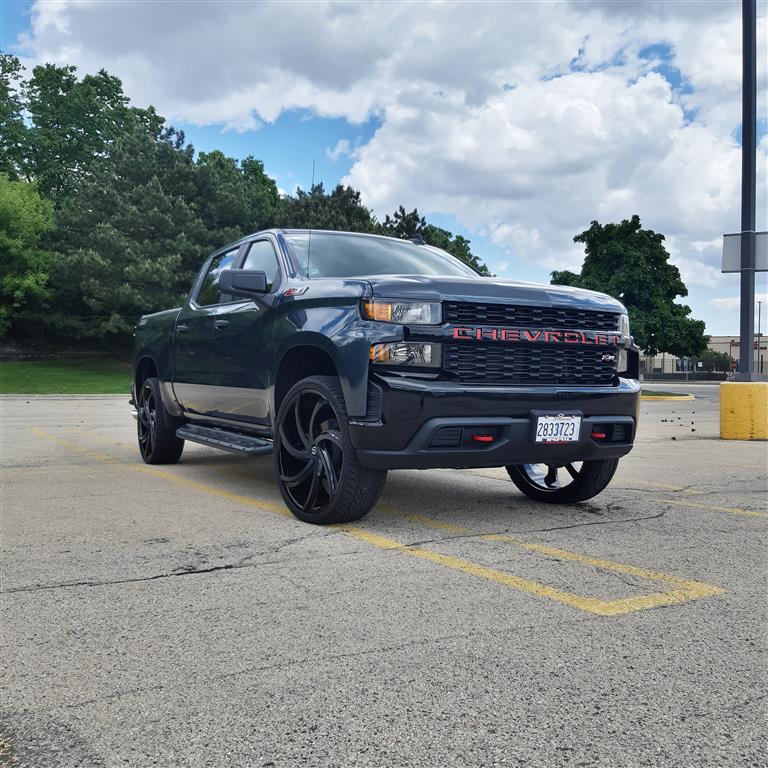When it comes to car maintenance, ignorance can be costly. Simple mistakes or neglecting certain aspects of car care can lead to expensive repairs and compromised performance. To help you avoid these pitfalls, we’ve identified three common car maintenance mistakes that you’ll undoubtedly regret. By steering clear of these blunders and following our car care tips, you can ensure your vehicle stays in top shape for years to come.

Key Takeaways:
- Ignoring rust can lead to extensive corrosion and costly repairs.
- Overfilling tires can cause rough rides, increased stopping distances, and unnecessary wear on suspension components.
- Using the wrong coolant or mixing different types can result in damage to your car’s engine and cooling system.
- Mixing up brake fluid and power steering fluid can lead to brake or steering failure, requiring expensive repairs.
- Disconnecting battery cables while the engine is running can cause severe damage to electronic components.
Ignoring Rust: A Costly Mistake
Rust on your car might not seem like a big deal, but it can be far worse than it appears on the surface. Ignoring rust bubbles can lead to larger areas of corrosion beneath the paint, resulting in extensive repairs and decreased resale value. The longer you neglect rust, the more it spreads, making it even more challenging and expensive to fix.
“Rust never sleeps,” as musician Neil Young once said, and he couldn’t be more right. Rust is a relentless force that weakens the structural integrity of your car. Don’t let the seemingly harmless rust bubbles fool you – they are the telltale signs of a more significant problem brewing underneath.”
To properly address rust, it is crucial to act promptly. Start by thoroughly cleaning the affected area, removing any loose or flaking rust. Then, apply a rust converter or inhibitor to halt the corrosion process. Finally, touch up the paint to restore the car’s appearance and protect it from further damage. Remember, rust prevention and maintenance are key to preserving your vehicle’s longevity and value.
Preventing Rust: A Proactive Approach
One way to prevent rust is by washing your car regularly, especially during the winter months when salt and road chemicals can accelerate corrosion. Additionally, applying a high-quality wax or a protective coating can provide an additional barrier against rust-causing elements.
Don’t let rust compromise your car’s safety, performance, and resale value. Take action at the first sight of rust bubbles to save yourself from the headache and expense of extensive repairs down the road.
Overfilling Tires: Not Worth the Mileage
Inflating your tires to the maximum pressure listed on the sidewall might seem like a way to improve gas mileage, but it can actually have negative effects on your car’s performance. Overinflated tires can lead to a rougher ride, increased stopping distances, and more wear on suspension components.
According to experts, maintaining the correct tire pressure is crucial for optimal handling, safety, and fuel efficiency. Overinflated tires have less contact with the road, resulting in decreased traction and stability. This can be especially dangerous in wet or slippery conditions where loss of control is more likely.
Overinflated tires not only compromise your safety, but they can also lead to premature wear and tear on your car’s suspension system. It’s important to follow the recommended tire pressure provided by the manufacturer to ensure a smooth and comfortable ride while maximizing fuel efficiency.
Protect your tires and your car:
To avoid overfilling your tires, regularly check your tire pressure with a reliable gauge and adjust it to the recommended level indicated in your vehicle’s manual or on the driver’s side door jamb. Remember that tire pressure can fluctuate with temperature changes, so it’s essential to check it at least once a month and before long trips.
It’s also worth noting that underinflated tires can be just as harmful. They can lead to decreased fuel efficiency, increased tire wear, and a higher risk of blowouts. Maintaining the proper tire pressure is a simple yet crucial step in car maintenance that can help you avoid unnecessary expenses and ensure a safer driving experience.

Using the Wrong Coolant: A Coolant Catastrophe
When it comes to maintaining your car, using the wrong coolant can have disastrous consequences. Many people make the mistake of assuming that all coolants are the same, but this couldn’t be further from the truth. Each coolant is specifically formulated to be compatible with the metals, plastics, and rubber used in your car’s cooling system.
Mixing different types of coolant or using the wrong coolant can lead to corrosion, premature failure of components, and damage to seals and gaskets. This can result in costly repairs and even engine damage. It’s important to understand that the cooling system of your car plays a critical role in keeping the engine temperature regulated, and using the wrong coolant can interfere with its effectiveness.
“Using the wrong coolant or mixing different types of coolant can spell disaster for your car’s engine and cooling system.”
To avoid a coolant catastrophe, always refer to your car’s owner manual or consult with a professional mechanic to determine the correct coolant for your vehicle. They will be able to recommend the appropriate coolant type and brand that is compatible with your car’s specific make and model.
Conclusion
Using the wrong coolant is one of the car maintenance don’ts that can have serious consequences. To protect your car’s engine and cooling system, always use the right coolant and avoid mixing different types. It’s better to be safe than sorry when it comes to maintaining your vehicle’s longevity and performance.

Mixing Up Fluids: a Recipe for Disaster
When it comes to maintaining your car, it’s essential to pay close attention to the fluids you use. One common mistake that can have serious consequences is mixing up brake fluid and power steering fluid. This seemingly harmless error can lead to disastrous outcomes and costly repairs.
Brake fluid and power steering fluid serve different purposes and have distinct properties. Brake fluid is designed to withstand high temperatures and provide hydraulic pressure for the braking system. On the other hand, power steering fluid helps to lubricate and assist the steering mechanism. Using the wrong fluid in either system can compromise their performance and even lead to failure.
“Mixing up brake fluid and power steering fluid can have severe consequences. Adding brake fluid to the power steering system, or vice versa, can result in brake or steering failure, putting your safety at risk.”
It’s crucial to always double-check before adding any fluid to your car. Inspect the cap or owner’s manual to determine the correct type of fluid for each system. Additionally, make sure to keep the fluids labeled and stored separately to avoid any mix-ups.
Preventing Fluid Mix-up
To prevent mixing up brake fluid and power steering fluid, follow these simple steps:
- Read the owner’s manual: Familiarize yourself with the specific fluid requirements for your car and take note of the recommended types for each system.
- Inspect the fluid reservoirs: Before adding any fluid, ensure you’re working with the correct reservoir. Brake fluid reservoirs are typically located near the master cylinder, while power steering fluid reservoirs are usually positioned near the power steering pump or rack.
- Label your fluids: Use waterproof labels or markers to clearly identify which fluid is which. This will help prevent accidental mix-ups during future maintenance.
- Seek professional help: If you’re unsure or uncomfortable handling fluids, it’s always best to consult a professional mechanic. They have the expertise to ensure the right fluids are used and can perform any necessary fluid replacements or flushes.
By taking these precautions and avoiding fluid mix-ups, you can protect your car’s braking and steering systems, as well as your own safety.

Say No to “Universal” Fluids

When it comes to maintaining your car, using the right fluids is crucial. However, there are some manufacturers who claim that their “universal” fluids can work for any car. Unfortunately, this is a misconception that can lead to serious damage to your car’s systems.
“Using the wrong fluids can cause irreversible damage to important components of your car. It’s essential to always use the recommended fluids for your vehicle.”
Each car is designed with specific requirements for transmission fluid and power steering fluid. These fluids have different properties and compositions that are engineered to work with the materials used in the car’s systems. Using the wrong fluids or mixing different types can cause corrosion, premature wear, and damage to seals and gaskets. As a result, you may end up with costly repairs or even a complete system failure.
Stick to the recommended fluids
Car manufacturers strongly advise against using “universal” fluids and recommend sticking to the fluids specified in your car’s owner’s manual. These manuals provide detailed information about the fluids that are compatible with your car’s systems. By following these recommendations, you can ensure the proper functioning and longevity of your vehicle.
Don’t take any chances with your car’s health. Using the right fluids may seem like a small detail, but it can make a big difference in the long run. So, say no to “universal” fluids and always use the recommended fluids for your car to avoid potential damage and costly repairs.
Avoid Disconnecting Battery Cables
Modern cars are equipped with complex electrical systems that rely on a stable power supply to function properly. Disconnecting a battery cable while the engine is running used to be a common practice to test the alternator. However, this can have severe consequences in today’s vehicles.
When you disconnect a battery cable while the engine is running, it causes a voltage spike that can damage sensitive electronics and computer modules. This can result in the malfunctioning of various systems and expensive repairs. It’s important to note that even disconnecting the negative cable can still cause damage, as the electrical current seeks a ground connection.
To safely test the alternator in modern cars, it’s recommended to use a multimeter or take your vehicle to a professional mechanic. They have the necessary tools and expertise to perform the alternator test without risking damage to your car’s electrical system.
Protect Your Car’s Electronics
Disconnecting the battery cable while the engine is running can fry multiple electronic components, resulting in expensive repairs.
By avoiding the mistake of disconnecting battery cables while the engine is running, you can protect your car’s electronics and avoid unnecessary expenses. Always remember to rely on qualified professionals for proper diagnosis and testing procedures to ensure the safety and integrity of your vehicle’s electrical system.
Don’t Ignore the Oil Light
When it comes to your car’s maintenance, one mistake you should never make is ignoring the oil light. This warning indicator is there for a reason, and failing to address it can have serious consequences for your vehicle. The oil light typically illuminates when your engine is low on oil or when there is a problem with the oil pressure.
Driving with low or no oil can lead to engine damage and expensive repairs. Without adequate lubrication, the metal components within the engine can rub against each other, causing friction and heat buildup. This can result in engine overheating, seizing, or even complete failure.
Ignoring the oil light can also lead to decreased performance and efficiency. When your engine is running with low oil, it has to work harder to compensate for the lack of lubrication. This can cause increased wear and tear on the internal components, resulting in decreased fuel efficiency and potential power loss.
So, what should you do if the oil light comes on? First and foremost, don’t ignore it. Pull over to a safe location as soon as possible and check your oil level. If it’s low, top it up with the recommended oil for your vehicle. If the oil level is fine, but the light persists, it’s crucial to have your car inspected by a professional mechanic to determine the cause of the issue and address it promptly.
“Ignoring the oil light is like playing Russian roulette with your engine. It’s a warning sign that you shouldn’t ignore if you care about the longevity and performance of your car.”
Keep Your Tank Above a Quarter
One car care tip that is often overlooked but can have significant consequences is keeping your tank above a quarter full. Consistently driving with a low fuel level can lead to fuel pump failure and other issues in your vehicle. The fuel pump relies on the gas in the tank to stay cool and operate efficiently. When the fuel level is consistently low, the fuel pump can overheat and wear out more quickly, leading to costly repairs.
Not only can driving with a low fuel level cause fuel pump failure, but it can also allow debris and sediments from the bottom of the tank to enter the fuel system. This can clog fuel filters and injectors, causing your engine to run poorly or even stall. Avoiding these issues is as simple as keeping your tank above a quarter full at all times.
By following this car care tip and maintaining a fuel level above a quarter, you can ensure the longevity of your fuel pump and prevent potential fuel system problems. It’s a small but important step in keeping your car running smoothly and avoiding unnecessary repairs.
Choose Your Car Upgrades Wisely
When it comes to upgrading your car, it’s essential to choose wisely. While some aftermarket modifications can enhance your car’s performance, safety, or aesthetics, others can be a waste of money and even lead to car repair mistakes. It’s crucial to make informed decisions and avoid unnecessary upgrades that may not bring you the desired results.
“Not all upgrades are created equal,” says automotive expert John Smith.
“Before making any modifications to your car, consider your needs and research the potential impact on your vehicle’s performance and value. Upgrades should align with your goals and preferences while maintaining the reliability and integrity of your car.”
One common mistake car owners make is adding excessive weight to their vehicles. While installing aftermarket body kits or heavy accessories may appear visually appealing, they can negatively impact your car’s fuel efficiency, handling, and overall performance. Instead, focus on upgrades that provide real value and improve your driving experience without compromising the integrity of your car.
Remember, upgrading your car should be a thoughtful process. Consult with experts, read user reviews, and consider the long-term effects before diving into modifications. By choosing your car upgrades wisely, you can avoid car repair mistakes, save money, and ensure that your car remains in optimal condition for years to come.
Upgrading for the Right Reasons
When it comes to car upgrades, it’s essential to have clear reasons for making the modifications. Ask yourself why you want to upgrade your car and what you hope to achieve. Whether it’s improving performance, enhancing safety features, or enhancing the aesthetics, always ensure that the upgrades align with your needs and priorities.
Research and Consultation
Before investing in any car upgrade, thoroughly research the available options and seek advice from professionals in the field. Online forums, automotive websites, and expert opinions can provide valuable insights into the effectiveness, compatibility, and potential drawbacks of various aftermarket modifications. Consulting with knowledgeable professionals can help you make informed decisions and avoid costly mistakes.
The Importance of Proper Car Maintenance
Proper car maintenance is crucial for ensuring the safety, efficiency, and longevity of your vehicle. By avoiding common car maintenance mistakes and following recommended practices, you can save yourself from costly repairs and keep your car running smoothly for years to come.
“Regular maintenance is like preventive medicine for your car. It helps identify potential issues before they become major problems,” says automotive expert John Smith. “Simple tasks like checking your oil level, inspecting the tires, and changing the filters can go a long way in preventing breakdowns and extending the life of your car.”
One of the key aspects of car maintenance is staying on top of routine inspections and servicing. Regularly checking and changing fluids, such as oil, coolant, and brake fluid, is essential to keep your car’s vital systems in good working condition. Ignoring these fluids or using the wrong ones can lead to costly repairs and even engine damage.
“Maintaining proper fluid levels and quality is critical for the overall health of your car,” advises Jane Johnson, a certified mechanic. “Each fluid serves a specific purpose and using the correct type and grade ensures optimal performance and protects against potential problems.”
Additionally, don’t forget to address any warning signs or unusual noises promptly. Pay attention to dashboard warning lights, strange engine sounds, or any changes in your car’s performance. Ignoring these signs can exacerbate the issue and result in more extensive and expensive repairs.
By prioritizing regular car maintenance and following recommended guidelines, you can enjoy a safer and worry-free driving experience, while also increasing the resale value of your vehicle. Remember, a well-maintained car is not only a reliable means of transportation but also a long-term investment in your peace of mind.
Conclusion
Taking care of your car properly is crucial to avoid costly car maintenance mistakes and car repair regrets in the future. By avoiding these three common car maintenance mistakes and following good car care tips, you can keep your car in top shape and enjoy worry-free driving.
Regular maintenance is key to preventing issues and ensuring your car’s longevity. Don’t ignore rust, as it can lead to extensive repairs and decreased performance. Overfilling tires might seem like a way to improve gas mileage, but it can actually harm your car’s performance and cause increased wear on suspension components. Using the wrong coolant can spell disaster for your car’s engine and cooling system, leading to corrosion and damage to seals and gaskets.
Remember to prioritize regular maintenance, follow recommended practices, and address any issues promptly. By doing so, you can prolong the lifespan of your vehicle and avoid unnecessary car repair mistakes. Keep your car in top shape, and enjoy the benefits of a well-maintained and reliable vehicle.
FAQ
Why is rust on my car a big deal?
Ignoring rust bubbles can lead to larger areas of corrosion beneath the paint, requiring extensive repairs.
What are the negative effects of overinflated tires?
Overinflated tires can lead to a rougher ride, increased stopping distances, and more wear on suspension components.
Why is using the wrong coolant or mixing different types of coolant a problem?
Mixing coolants can lead to corrosion, premature failure of components, and damage to seals and gaskets.
What can happen if I mix up brake fluid and power steering fluid?
Adding the wrong fluid to these systems can lead to brake or steering failure, resulting in costly repairs.
Can I use universal fluids for my car?
Each car has specific requirements for transmission and power steering fluids, and using the wrong fluids can cause damage to your car’s systems.
Is it safe to disconnect battery cables while the engine is running?
Modern cars with computers and electronics can be severely damaged by this practice, resulting in expensive repairs.
Why should I never ignore the oil light?
Driving with low or no oil can result in costly repairs or even engine replacement.
What can happen if I consistently drive with less than a quarter tank of gas?
It can lead to fuel pump failure and debris getting into the fuel system, causing further damage.
Are all car upgrades beneficial?
Some upgrades can be a waste of money and even make your car less desirable.
How important is proper car maintenance?
Proper car maintenance is essential for keeping your vehicle safe, efficient, and running smoothly.
Last Updated: October 16, 2024





Recent Comments